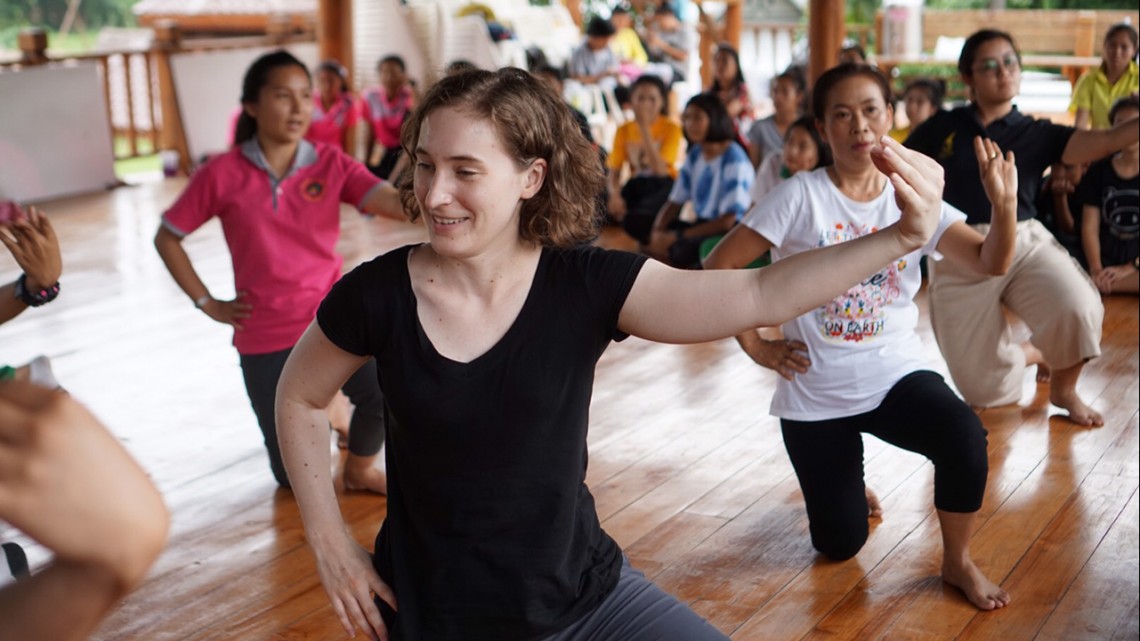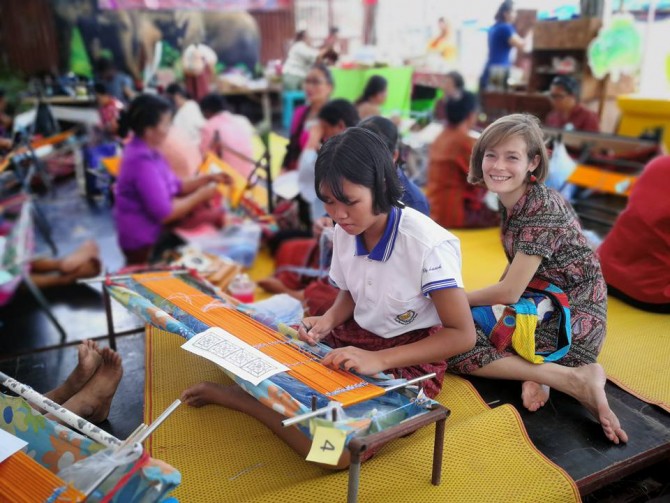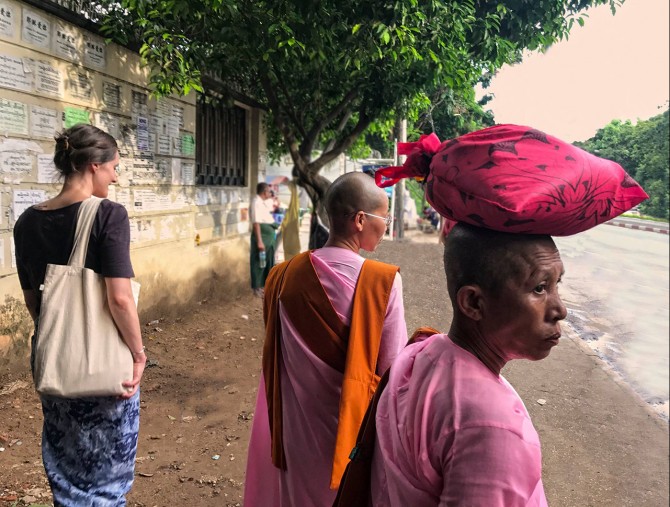
Mary Moroney, center, a doctoral student in linguistics, received a Foreign Language and Area Studies grant in preparation for her research in Thailand.
South and Southeast Asia Programs named National Resource Centers
By Jonathan Miller
Cornell’s South Asia Program (SAP) and Southeast Asia Program (SEAP), both part of the Mario Einaudi Center for International Studies, have been awarded more than $3.9 million in Title VI grants under the federal National Resource Centers and Foreign Language and Area Studies Fellowships programs.
The four-year grants, administered by the U.S. Department of Education, support language instruction, fellowships, outreach to K-12 teachers and faculty at community colleges and teacher-training institutions, international partnerships, study abroad and other activities.
“The National Resource Center designation is a hard-earned honor,” said Wendy Wolford, Cornell’s vice provost for international affairs. “It is really a testament to the world-class faculty, students and staff of these extraordinary programs.”
SEAP will receive approximately $2.3 million and SAP, which is in a consortium with Syracuse University’s South Asia Center, will receive roughly $1.6 million. The Foreign Language and Area Studies grants will provide tuition and stipends for 14 Cornell graduate students each year, and enable nine graduate and undergraduate students to pursue intensive language study during the summers.
SEAP has been a National Resource Center since the Title VI program began in 1958. Sixty years of NRC and FLAS grants have helped solidify its standing as one of the strongest area study programs in the country. Its John M. Echols Collection on Southeast Asia is the largest in the world, with more than 500,000 monographs in 162 languages. SEAP publishes Southeast Asian monographs and language textbooks, and produces the only journal exclusively about Indonesia.
Cornell is also the only university in the United States to offer four levels of study in all six major Southeast Asian languages (Burmese, Indonesian, Khmer, Tagalog, Thai and Vietnamese).
“These rich offerings are supported in part through NRC funding,” said Abby Cohn, director of SEAP and professor of linguistics.
“Language training for undergraduates, graduate students and, on occasion, faculty members is critical to all facets of the research and teaching mission of the Southeast Asia Program,” Cohn said. “Cornell has taken a leadership role through its commitment to teaching the least commonly taught of the less commonly taught languages.”
The Cornell-Syracuse South Asia Consortium has been a National Resource Center since 1985. SAP has 58 affiliated faculty from across Cornell’s colleges and schools, working in the humanities, social sciences and natural sciences. It offers 11 South Asian languages: Bengali, Hindi, Nepali, Pali, Persian, Punjabi, Sinhala, Sanskrit, Tamil, Tibetan and Urdu, and is the only university outside Asia to offer four levels of Nepali and Sinhala.
“These awards enable Cornell students to study critically important languages that are necessary for any in-depth engagement with South Asia,” said SAP director Iftikhar Dadi, professor of the history of art. “Our program is distinctive in covering the breadth of South Asia, which includes Bangladesh, India, Nepal, Pakistan, Sri Lanka and their diasporas.”
Among the SAP projects supported by the NRC grant is the Sustainable South Asia Initiative, which features a series of workshops and seminars with community college and teacher education partners, a speaker series, a conference, and community college faculty development opportunities in India.
SAP and SEAP collaborate on outreach activities for New York state educators, including teacher-training workshops and an annual International Studies Summer Institute for K-12 teachers. They also maintain collections of cultural and language materials for use by teachers year-round.
Jonathan Miller is associate director for communications at the Einaudi Center.
Media Contact
Get Cornell news delivered right to your inbox.
Subscribe


